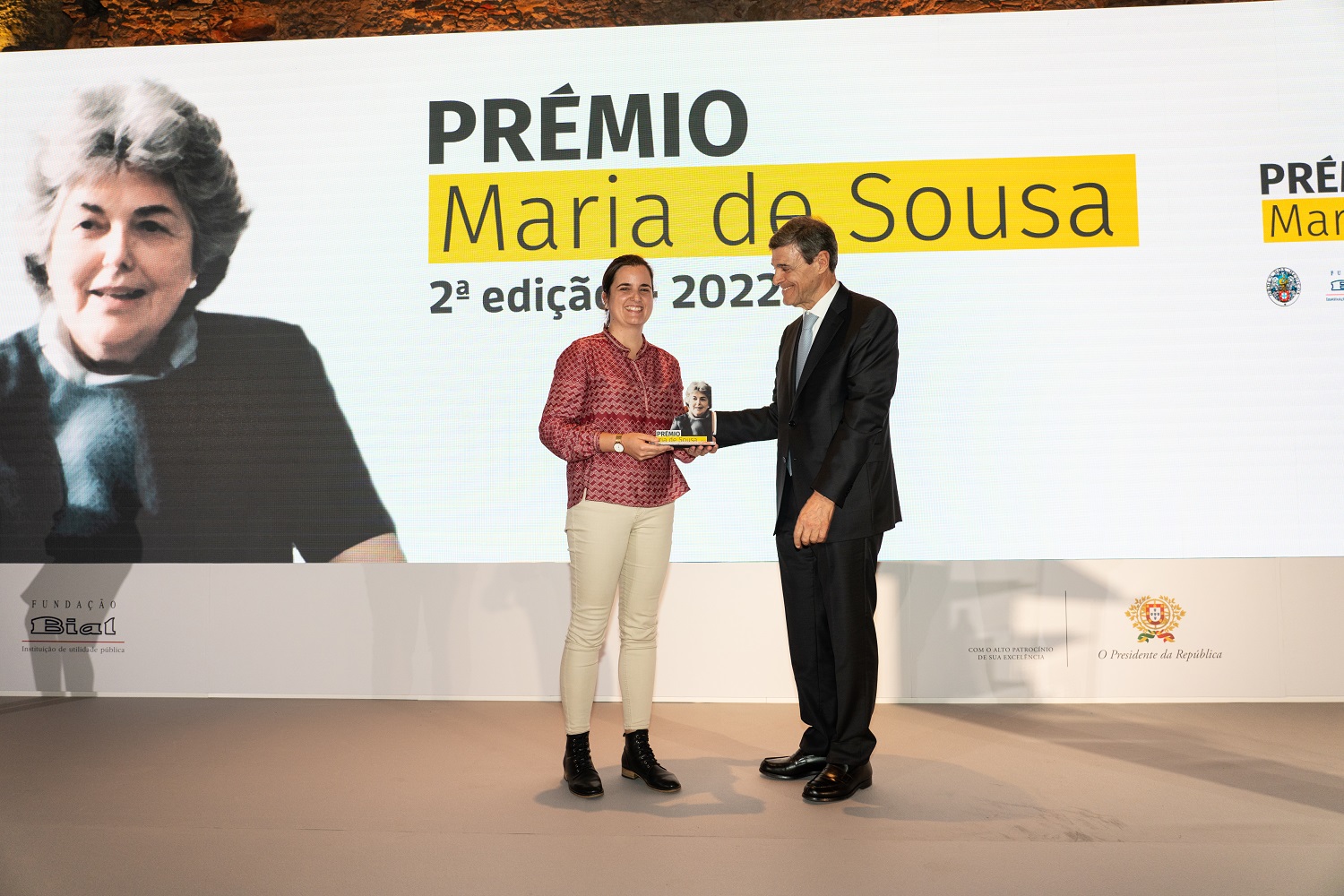FIVE YOUNG RESEARCHERS AWARDED IN THE AREAS OF NEUROSCIENCES, CANCER, DEGENERATIVE DISEASES AND THE INFLUENCE OF THE ENVIRONMENT ON HEALTH
The award ceremony for the second edition of the Maria de Sousa Award took place on November 14 at Teatro Thalia, in Lisbon, and was attended by the Minister of Science, Technology and Higher Education, Elvira Fortunato, who chaired the session, the Secretary of State for the Promotion of Health, Margarida Tavares, representing the Minister of Health, and the Secretary of State for Higher Education, Pedro Teixeira.
The five winners, all young PhDs in health sciences, are Carina Soares-Cunha (ICVS, U.Minho), Sandra Tavares (i3S, U.Porto), Ana Melo (IST-ID, U.Lisboa), Ana Rita Cruz (Champalimaud Research/Systems Oncology) and Daniela Rodrigues (CIAS, U.Coimbra).

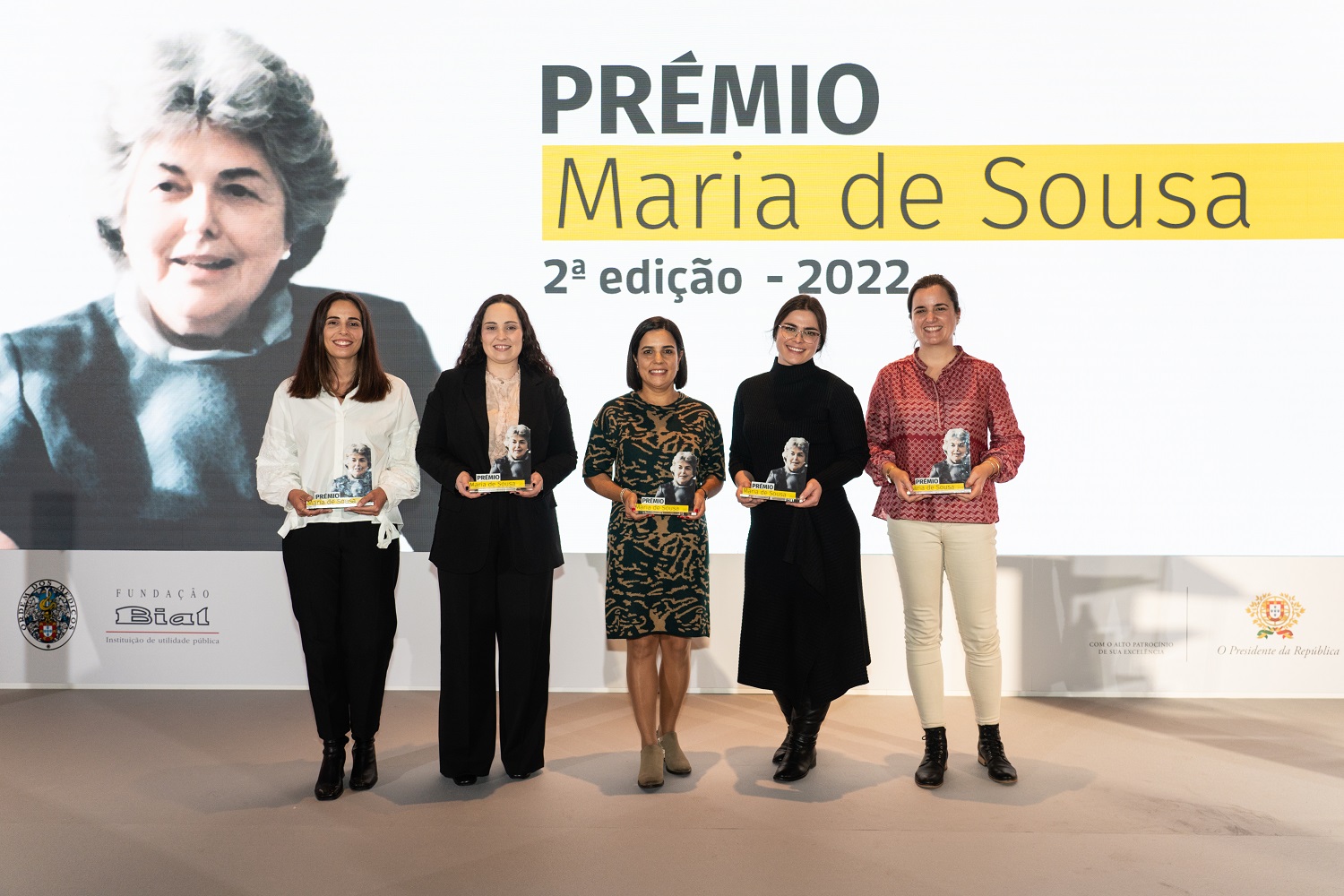
The award-winning projects in the 2022 edition were selected from 54 applications and focus on research in the areas of neurosciences, cancer, degenerative diseases and the influence of the environment on health.
In an exclusive partnership of the Portuguese Medical Association and the BIAL Foundation, this award pays tribute to the leading Portuguese immunologist and researcher Maria de Sousa, who will always be remembered as a unique personality in science worldwide.

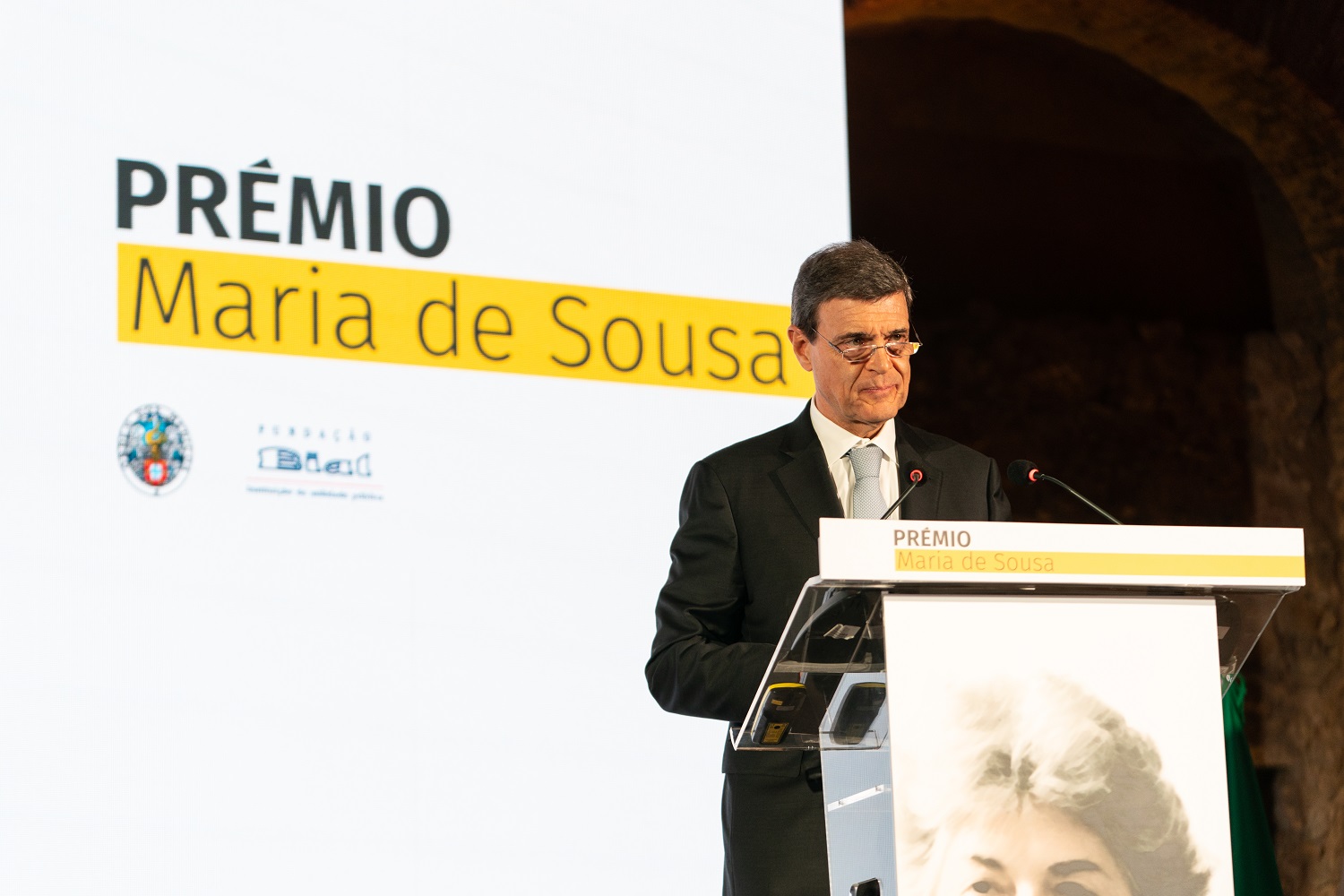
The president of the Portuguese Medical Association, Miguel Guimarães, recalls that "continuing the legacy of Professor Maria de Sousa is the noblest way we have to honor her", adding that "today we celebrate science in research, in innovation and in medicine, we honor a great master who distinguished herself for her scientific and technical quality, combining research with humanism, knowledge with teaching and training, the joy of living with the arts”.
For the chairman of the BIAL Foundation, Maria de Sousa “profoundly marked the BIAL Foundation and left a friend in each one of us”, and he reiterated the great pleasure of, “in partnership with the Portuguese Medical Association, we once again distinguish and support young researchers to develop their careers and reach the world, as Maria de Sousa always fought for”. Luís Portela also left his wishes to the winners: "Be happy in carrying out these projects and in achieving a scientific career that is truly useful to people".
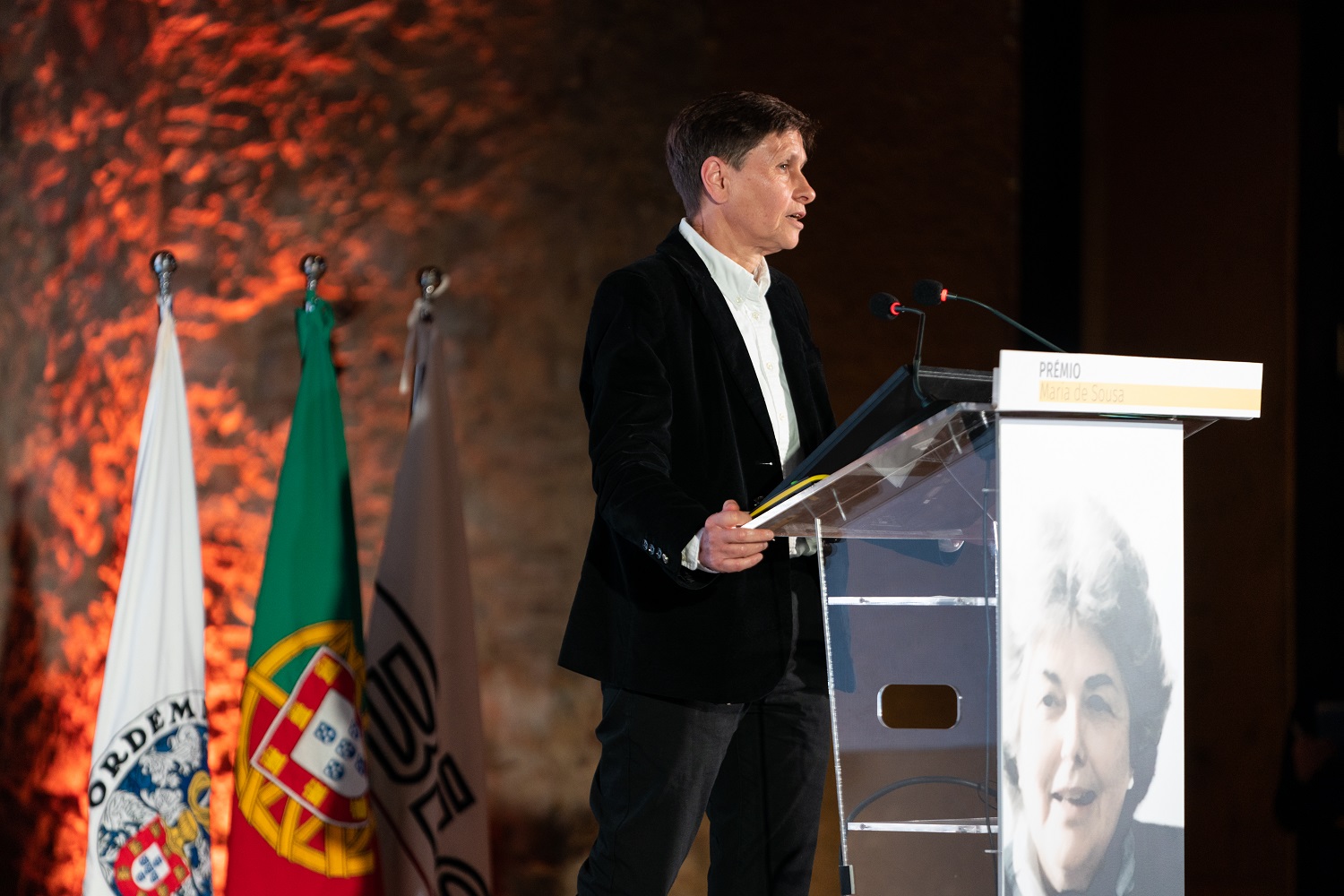

Representing the Jury, Maria do Carmo Fonseca recalled that Maria de Sousa “was a person extremely concerned with ensuring that the new generations could have scientific literacy and could have the opportunity to develop a career in Science”. The neuroscientist evoked the last words of the Professor, who “made a point of writing that it is now our responsibility to continue this concern, which she had and nurtured so much, which is to ensure that the next generations have the opportunity to develop Science in Portugal”.
In her closing speech, the Minister of Science highlighted the fact that the winners were five women. “It's a good thing there were five women because, it's always good to remember these things, the attribution of Nobel Prizes until 2022 was around 900, of which 60 were women. Addressing the winners, she declared that “it is from you that we expect all the questions because, as Maria de Sousa said, to research is to ask with instruments, and it is from you that we expect many answers, even if they are not the ones that you are expecting when you start the journey”.
In addition to neuroscientist Rui Costa, the jury is composed of researchers who were very close to Maria de Sousa: Maria do Carmo Fonseca, president of the Institute of Molecular Medicine (iMM) of the Faculty of Medicine of the University of Lisbon, Graça Porto, group leader for research on the biology of iron at the Institute for Research and Innovation in Health Sciences (i3S) of the University of Porto, Miguel Castelo-Branco, director of the Center for Biomedical Imaging and Translational Research (CIBIT) at the University of Coimbra, and Joana Palha, full professor at the School of Medicine of the University of Minho.
The award, which had its first edition in 2021, will be awarded annually to five young researchers, worth up to €30,000 each, including a mandatory internship at an international center of excellence.
Awarded projects
Carina Soares-Cunha | ‘Mapping neuronal ensembles of associative learning in the nucleus accumbens’
Survival and adaptation to the environment require individuals to identify stimuli that predict rewards or dangers and learn to act accordingly. Those behaviors occur through associative learning processes, which are guided by the activity of brain area called the nucleus accumbens (NAc). The hypothesis raised in this project is that associative learning requires the engagement of genetically and functionally distinct NAc neurons, that to the date remain to be determined. A multidisciplinary approach will then be followed to allow a detailed understanding of the transcriptional and functional signatures of neuronal ensembles involved in associative learning.
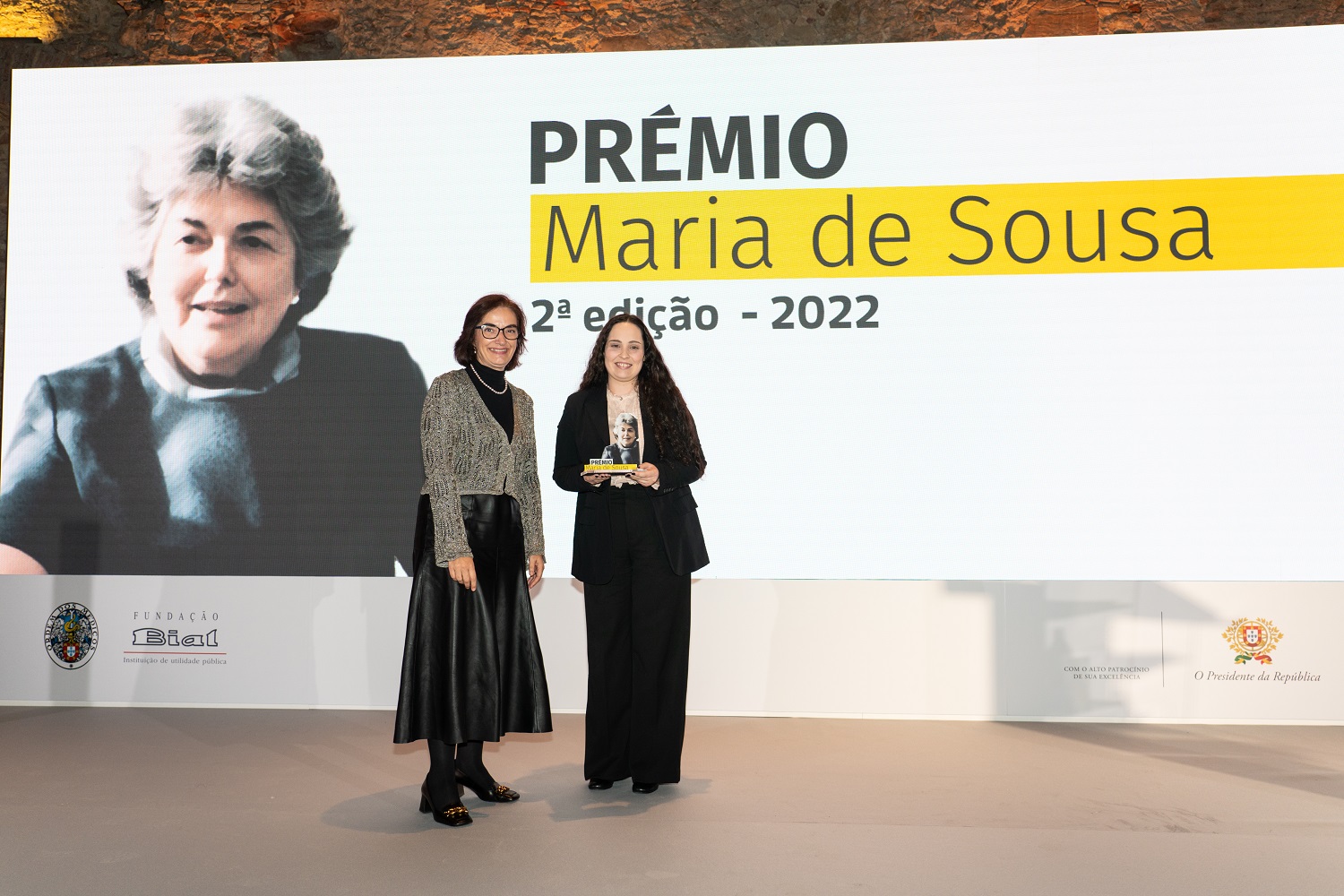

Sandra Tavares | ‘EMERGENCE - mEMbranE tRafficking drivEs aGgrEssiveness in breast caNCEr’
This research project was designed to help fight Triple Negative Breast Cancer (TNBC), as this is one of the most aggressive types of breast cancer. Because of the lack of targeted therapeutic intervention, most of these cancer patients will succumb of metastatic. As the understanding of the mechanisms behind the aggressiveness of this cancer constitutes a problem of unmet need, the goal of this project is to identify proteins that stimulate protein recycling and propel invasion and metastasis in TNBC.
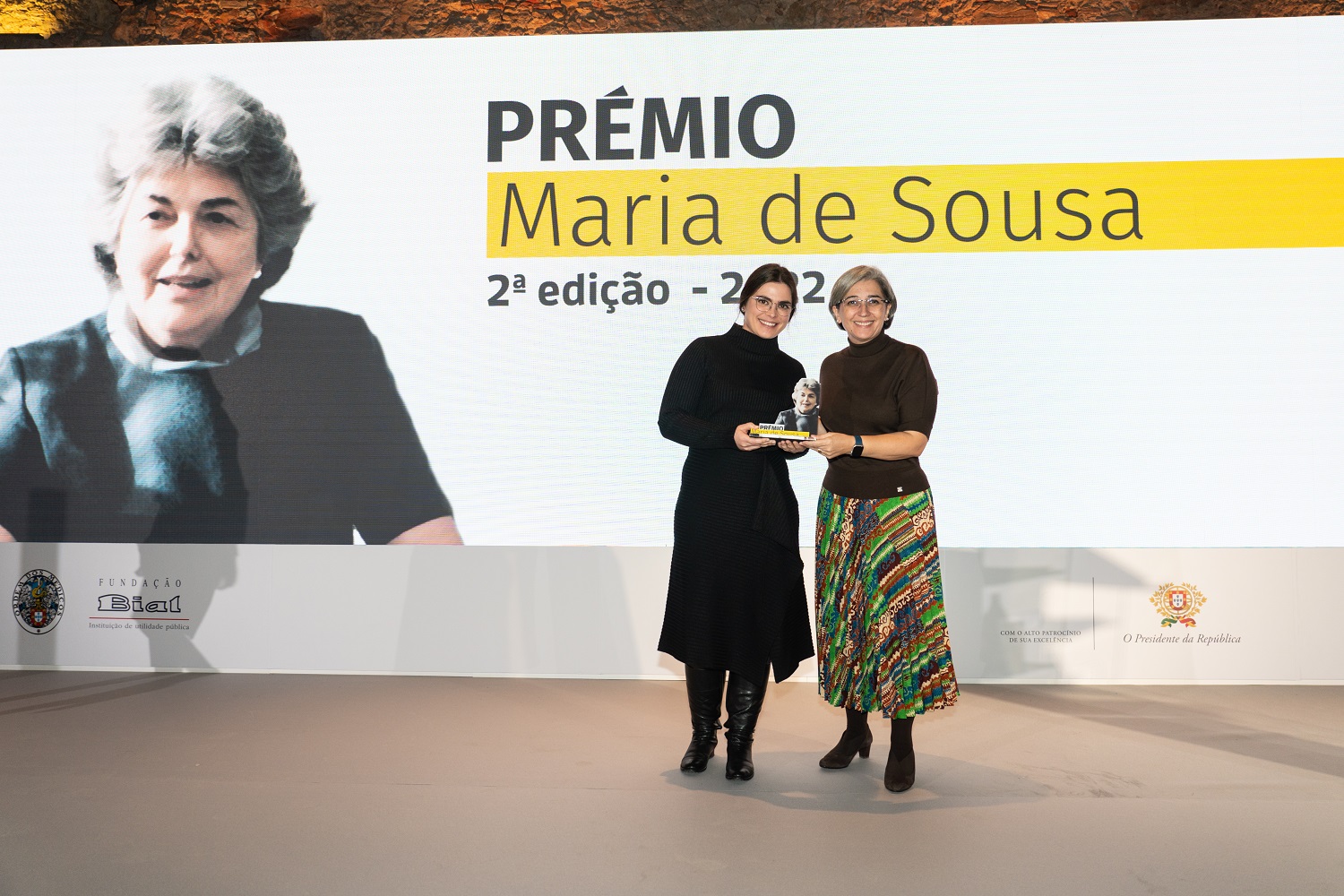
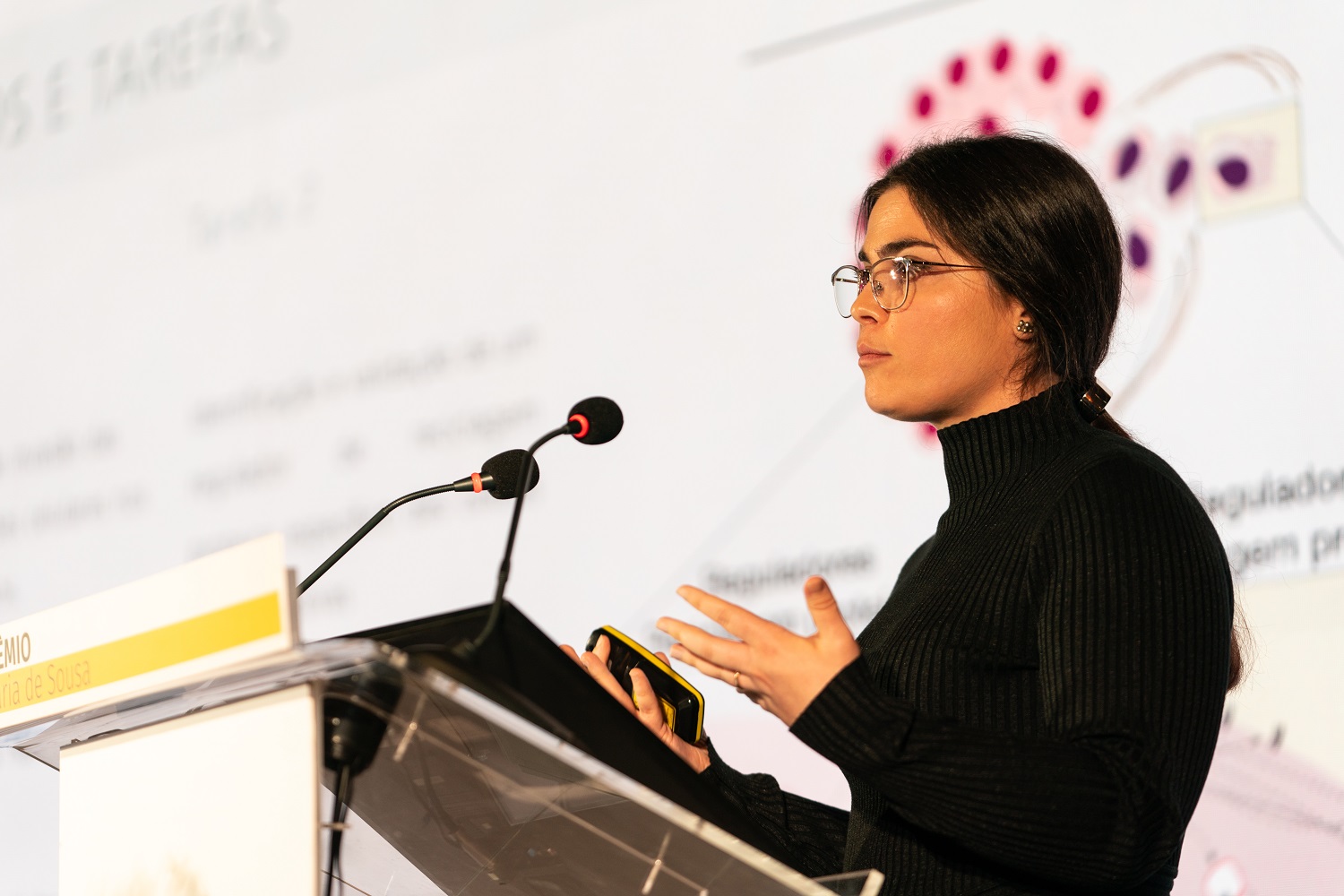
Ana Melo | ‘Tracking the unconventionally secreted tau species: insights into the progression of tauopathies’
The pathological deposition and aggregation of tau protein in the brain is responsible for several devastating neurodegenerative diseases (tauopathies), including Alzheimer's Disease (AD). Collectively, tauopathies are responsible for most dementia cases, and specifically AD represents 60-80%. This multidisciplinary project will use advanced microscopy techniques to describe in detail these initial steps of path-Tau membrane translocation, which will enable the development of new inhibitors for the treatment of tauopathies, allowing to act in early stages of neurodegeneration.

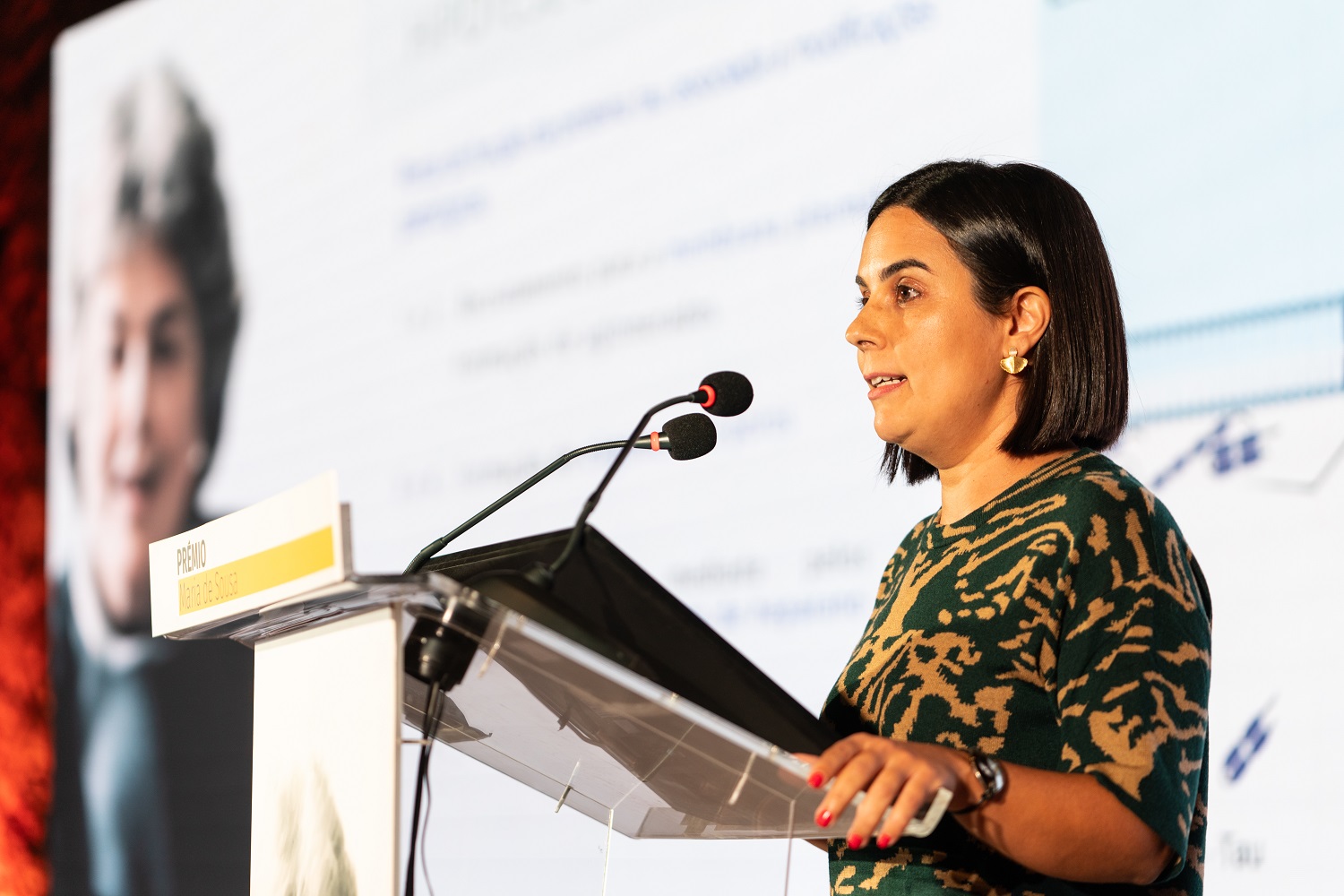
Ana Rita Cruz | ‘IFNγ-decoy by tumor extracellular vesicles as a mean to evade antitumor immunity and immunotherapy’
Immune checkpoint inhibitors (ICI) are used in the treatment of tumors, as they restore antitumor immunity. However, only about 20% of cancer patients respond to ICI therapies. To increase treatment success, there is a need to understand the molecular determinants of response and resistance of cancer patients to these therapies. To achieve this goal, the contribution of the interferon-γ receptor (IFNGR) in extracellular vesicles for the regulation of interferon-γ (IFNγ) signaling and for the treatment of melanomas in vitro will be studied. This project will improve our understanding of the mechanisms behind tumor progression, which could help in the development of complementary therapies to ICI, increasing their success.


Daniela Rodrigues | ‘UPSEE HEALTH Project – Urban Places and Sensory Experiences of Everyday in HEALTH’
Walking is the most basic soft mobility mode and plays a vital role in reducing obesity rates and promoting public health. Being an activity that takes place outdoors, the environment influences the experience of walking, and ultimately the adoption and maintenance of this behavior. This project aims to study how the urban environment influence young people’s regularly occurring experiences and observe how that sensory place lived experience is associated with the way young adults use and interact with the urban space in ways that affect health. The project presents a novel method combining a MSD - Mobile Sensory Device (e.g., vital signs, location, movement/acceleration) and an innovative app analysis (e.g. experiences in places, place of birth, food, exercise, sleep habits), together with anthropometric measurements (e.g., height, weight, abdominal circumference) and analysis of space features (e.g., natural elements, urban furniture).
